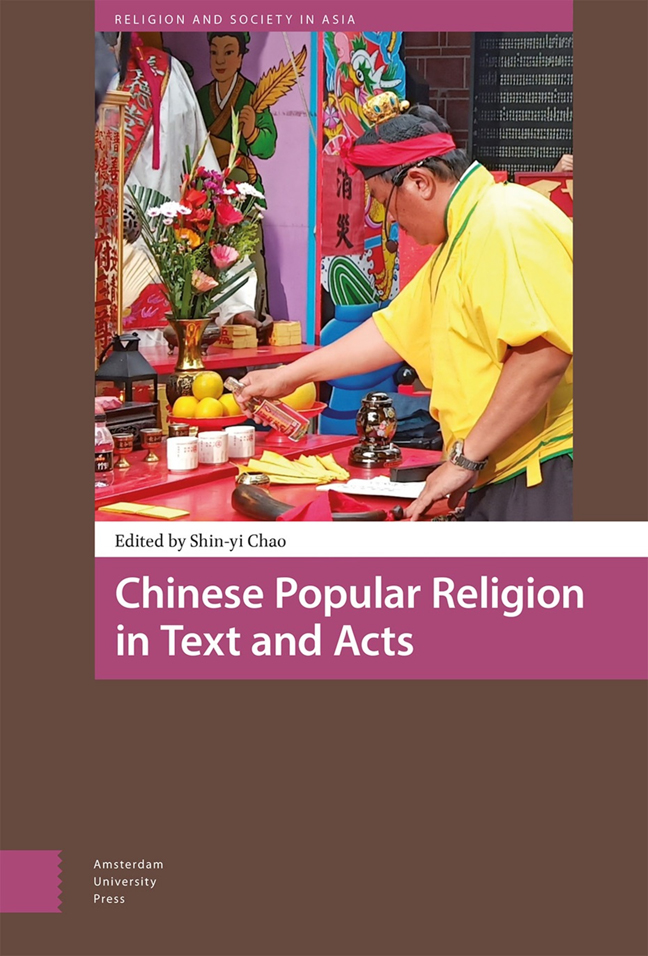Book contents
- Frontmatter
- Contents
- List of Figures and Tables
- Acknowledgements
- Dedication
- Introduction: Text, Acts, and Traditionalization: Performing Chinese Popular Religion
- Section One Texts And Acts
- Section Two Scriptures and Rituals
- Section Three Saints’ Legends and Gods’ Lore
- Section Four Temple Festivals and Pilgrimages
- Index
6 - Knowledge and Ritual: The Dual Nature of the Scripture Illustrating the Holiness of Emperor Guan (Guandi mingsheng jing)
Published online by Cambridge University Press: 26 March 2024
- Frontmatter
- Contents
- List of Figures and Tables
- Acknowledgements
- Dedication
- Introduction: Text, Acts, and Traditionalization: Performing Chinese Popular Religion
- Section One Texts And Acts
- Section Two Scriptures and Rituals
- Section Three Saints’ Legends and Gods’ Lore
- Section Four Temple Festivals and Pilgrimages
- Index
Summary
Abstract
This essay offers a close reading of a spirit-writing text about the Emperor Guan (or Lord Guan), the deified general Guan Yu 關羽 (d. 220 CE), one of the most popular deities in China since late imperial times. The text under investigation, Guandi Mingsheng jing 關帝明聖經 (Scripture Illustrating the Holiness of Emperor Guan; hereafter mingsheng jing), was produced in the late eighteenth or early nineteenth centuries and was regarded as divine revelation. This text represents a revisionist effort to promote the “correct” religious beliefs in three aspects: first, the text Confucianizes the godhead of Lord Guan; second, it Sinicizes the beliefs of reincarnation along with purgatory; and third, it repudiates Buddhist postmortem redemption rituals. The Mingsheng jing also includes the rituals of recitation both in private and collectively. A revisionist interpretation of Lord Guan was thus produced, authenticated, and disseminated in the forms of reading, chanting and public lecturing.
Key words: Guan Yu, Mingsheng jing, spirit writing, Confucianization, Sinicization, criticism of Buddhist rituals and clergy
The historical figure, Guan Yu 關羽 (d. 220), has been one of the most popular subjects of worship in the Chinese cultural realm. He is among the few deities who can claim a truly nationwide cult. He served as a general at the end of the Eastern Han dynasty (25–220) and received a title at the rank of Marquis (hou 侯) along with a posthumous name, Zhuangmu 壯繆. His status continuingly escalated in the pantheons of both the state and popular religion with divine titles that included Martial Pacification King (Wuan wang 武安王), Great Lord who Quelled Demons (Fumo dadi 伏魔大帝), and Saintly Imperial Lord Guan (Guansheng dijun 關聖帝君). In Buddhism, he is called the Protector Bodhisattva (qielan pusa 伽藍菩薩). During the Ming dynasty (1368–1644), he began to be referred to as Master (fuzi 夫子) Guan and Militant Saint (wusheng 武聖), as a counterpart of Confucius in the martial realm. The Confucianization of Lord Guan has been developing ever since. The conformance of the Lord Guan cult to the Three Teachings of Confucianism, Buddhism, and Daoism is a main reason for his great popularity.
- Type
- Chapter
- Information
- Chinese Popular Religion in Text and Acts , pp. 149 - 166Publisher: Amsterdam University PressPrint publication year: 2023

